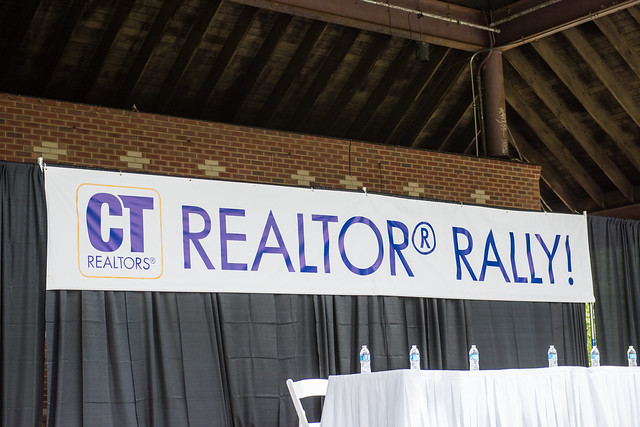Miami Association of REALTORS®, with more than 46,000 primary members, has to think BIG to deliver the most impact with the REALTOR® Party programs, explains Senior Vice President of Housing & Government Affairs Danielle Blake. In order to use REALTOR® Party resources efficiently, the Miami Association, through member engagement and feedback, developed a list of projects designed to bring significant improvements to nearly every corner of greater Miami.
To build the bundle of projects, the Miami Association invited its membership to a brainstorming session; more than 200 members, many of them members of the NAR’s Young Professionals Network (YPN), attended and submitted ideas with gusto: "REALTORS® work and live in all our communities," says Blake, "and they know what the needs are." Each final project was led by the REALTOR® who proposed it, and supported by a team of fellow REALTOR® volunteers and a REALTOR® Partner, typically an elected official. The group came up with the following projects, among others:
- In Miami Gardens, an incorporated city home to the Hard Rock Stadium where the Miami Dolphins play, REALTORS® kicked off the US-441 beautification project in anticipation of Super Bowl LIV in 2020: the mayor, city commissioners, residents and several REALTOR® members re-painted the façade of a prominent corner commercial building.
- The REALTORS® have partnered with the Ludlam Trail, a former railroad track that is now a recreational path, in sponsoring community events from car shows to yoga classes to movie nights, all branded with the REALTOR® name and logo.
- The REALTORS® are supporting the Underline, a large-scale project capitalizing on the unused space beneath the 10-mile elevated Metrorail between Miami and Coral Gables. More than 100 members participated in a kick-off bike ride sponsored by a portion of the bundled grant.
- Making use of both Housing Opportunity and Diversity Grants, the REALTORS® partnered with the local National Association of Hispanic Real Estate Professionals (NAHREP) chapter in hosting a condo-financing conference attended by 350 real estate professionals and members of the public. A white paper produced by the Miami Association of REALTORS®’ task force had influenced an FHA policy change, resulting in a significant increase of insurance compliances for condominium buildings.
- Inspired by the REALTOR® Village, a shipping-container community in the Philippines, built in cooperation with NAR, the Miami REALTORS® are tackling the housing affordability crisis by developing a container house prototype in the City of South Miami. The REALTORS® have navigated complex city zoning and setback requirements, partnered with the county to donate the land, and identified a local architect and contractor with container-home experience. With the enthusiastic support of an enlightened mayor, the tiny house is becoming a model reality.
- Miami REALTORS® are passionate about giving back to people of all backgrounds and abilities. With support from a grant, more than 40 Miami REALTORS® dressed up to serve dinner to more than 500 individuals in need at Chapman Partnership, a non-profit committed to empowering the homeless in Miami. The association is working to make the event an ongoing volunteer opportunity, and a number of REALTORS® who participated are working on future corporate events with Chapman Partnership.
The REALTOR® Party grants have also helped to create a dog park, and sponsor multiple Better Block projects that have spurred citizens and elected officials to make lasting improvements.
The great thing about the effort, says Blake, is that it succeeds on so many levels: "We were finally able to use these wonderful REALTOR® Party programs on a substantial level. We're interacting with elected officials, who, in turn, are recognizing the input and expertise of the REALTORS®. We're engaging our membership, and our YPN, in particular. We're helping our communities, and we're crafting housing policy! None of these projects, nor any of this positive effect, would have happened," she concludes, "without the support of the National Association of REALTORS®."
To learn more about how the Miami REALTORS® are using REALTOR® Party resources to improve their communities on multiple levels, contact Danielle Blake, Senior Vice President of Housing & Government Affairs, at 305-468-7015.




